At Hopton Church of England Primary Academy, we aspire to make learning engaging, interesting and fun. We strive to ensure that we are a school where every child is able learn and achieve. Our curriculum is broad and balanced and enjoyable for the children…and adults! As a coastal town, we pride ourselves on using our local environment as part of our learning. This includes school wide ‘Beach School’, where topic related learning takes place on the sandy shores of Hopton, and weekly Outdoor Learning can be seen within our own nature area.
Through our curriculum we aim to:
- Inspire and motivate the children to learn
- Develop the skills, knowledge and understanding of each child
- Give opportunities for children to learn from each other
- Promote a positive attitude to learning
- Create life-long learners
- Help children to understand Britain’s heritage
- Teach children how to be positive citizens in society.
Throughout the school year, the curriculum actively promotes the fundamental British values of democracy, the rule of law, individual liberty and mutual respect and tolerance for those with different faiths and beliefs. Children will also follow a programme of Personal, Social Citizenship and Health Education.
At Hopton we promote learning behaviours that encourage children to take responsibility for their own learning. We strive to develop each child’s personal qualities by using Hopton Learning Powers:
Have a go
Open to others
Perseverance
Think creatively
Own your learning
Notice things and be curious
Learning to Learn Week
At the start of every year, we jump into ‘Learning to Learn’ week where, as a school, we explore the learning process. From growth mindset, to the learning pit, every class has the week to learn more about themselves as learners. We use creative activities and challenges to encourage pupils to immerse themselves in what learning really is. Throughout the year, we continue to revisit areas of ‘learning to learn week’ to help develop our pupils into more reflective and ambitious learners.
Unique Week
Every term, we have a week where we celebrate what is unique and special about us. With a theme to follow, pupils explore the pride and joy we should share in what makes each of us different. Once the week is complete, we invite the school community, parents and governors, to come and share what the pupils have been upto.
Children with Learning Difficulties and Disabilities
The curriculum in the school is designed to provide access and opportunity for all children who attend Hopton. If adjustments to the curriculum are required, then these are made in line with pupils’ Personal Learning Plans (PLPs), parents and the various external agencies that may be involved with working with specific pupils.
Curriculum Organisation
The Early Years Foundation Stage
The provision delivered in Reception meets the requirements set out in the Early Years Foundation Stage Curriculum. Provision and curriculum planning focuses on working towards the children achieving the Early Learning Goals and on developing children’s skills and experiences. Weekly planning outlines focus teaching opportunities and continuous provision both for inside and outside learning.
Key stage 1 and 2
The curriculum taught across Key Stage 1 and Key Stage 2 is in line with the National Primary Curriculum and with the Norfolk Agreed Syllabus for Religious Education.
We encourage the pupils to push themselves and select challenges that are exactly that…a challenge! Where possible, we endeavour to make our learning cross curricular with extended writing and maths themes popping up across other subjects.
Our strong belief is that our wider curriculum should demonstrate and encourage ‘Impact, Significance, Curiosity, Exploration’. Within this, we strive to provide skills and knowledge progression within every subject from year to year. The long term plan is reviewed on a yearly basis.
| Classes | Autumn | Spring | Summer |
|---|---|---|---|
| Reception | All about me Terrific Tales | Amazing animals Come outside | Ticket to ride Fun at the seaside |
| Y1 | How am I making history? What is it like there? | How have toys changed? What is the weather like in the UK? | How have explorers changed the world? What is it like to live in Shanghai? |
| Y2 | Plots, poppies and puddings. Would you prefer to live in a hot or cold country? | How was school different in the past? Why is our world wonderful? | How did we learn to fly? What is it like to live by the coast? |
| Y3 | What did the ancient Egyptians believe? Where does our food come from? | Would you prefer to live in the Stone Age, Bronze Age or Iron Age? Who lives in Antarctica? | Why did the Romans settle in Britain? What are rivers and how are they used? |
| Y4 | How have children’s lives changed? Why do people live near volcanoes? | How hard was it to invade and settle in Britain? Why are rainforests important to us? | Were Vikings raiders, traders or settlers? Are all settlements the same? |
| Y5 | British history. Why do oceans matter? | Maya. Would you like to live in the desert? | Ancient Greece |
| Y6 | WW2. Where does our energy come from. | Greeks. Why does the population change? | Victorians. What is life like in the Alps. |
Long Term Planning
We plan a ‘Big Question’ for each half term and ensure our Humanities learning results in our children being able to answer this. We use the 5 E’s approach to our learning where, week by week we guide the children through the stages of Engage, Enquire, Explore, Evaluate and Express. Our learning is completed through exit tickets within our express lesson.
Our Governing Body
Our Governing Body is responsible for monitoring the way the curriculum is implemented throughout the school. The Headteacher produces half-termly reports to assist the Governing Body in its monitoring duties. The effectiveness of the curriculum is monitored within the Curriculum and Standards Committee meetings, which is then fed back to the Full Governing Body.
Revised curriculum policies and new initiatives are also discussed and ratified, where appropriate, within the Curriculum and Standards committee. Named Governors for areas of learning liaises with the subject leaders and monitors their area closely, looking at the impact on learning, attainment and achievement.

















